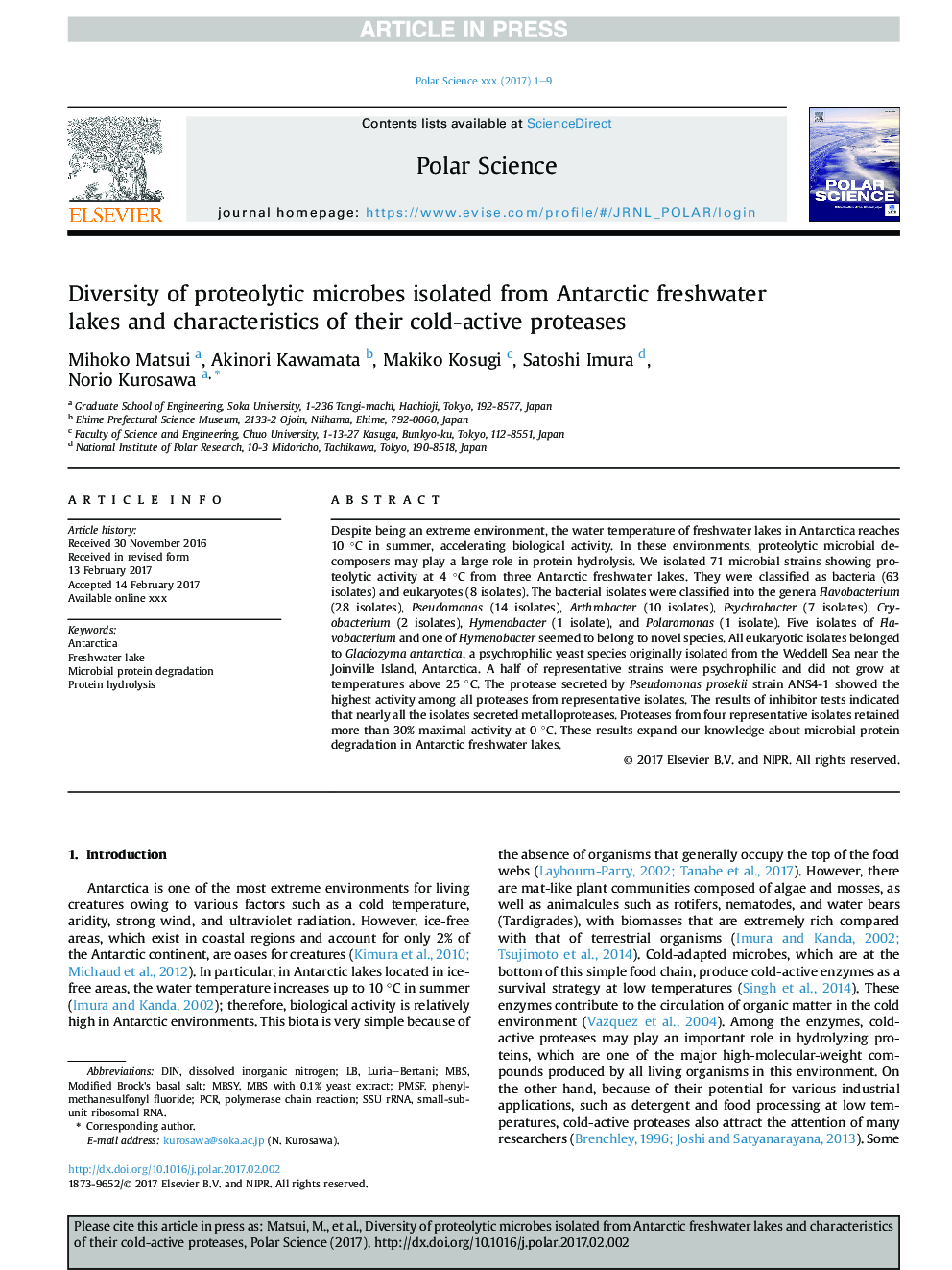| Article ID | Journal | Published Year | Pages | File Type |
|---|---|---|---|---|
| 5780542 | Polar Science | 2017 | 9 Pages |
Abstract
Despite being an extreme environment, the water temperature of freshwater lakes in Antarctica reaches 10 °C in summer, accelerating biological activity. In these environments, proteolytic microbial decomposers may play a large role in protein hydrolysis. We isolated 71 microbial strains showing proteolytic activity at 4 °C from three Antarctic freshwater lakes. They were classified as bacteria (63 isolates) and eukaryotes (8 isolates). The bacterial isolates were classified into the genera Flavobacterium (28 isolates), Pseudomonas (14 isolates), Arthrobacter (10 isolates), Psychrobacter (7 isolates), Cryobacterium (2 isolates), Hymenobacter (1 isolate), and Polaromonas (1 isolate). Five isolates of Flavobacterium and one of Hymenobacter seemed to belong to novel species. All eukaryotic isolates belonged to Glaciozyma antarctica, a psychrophilic yeast species originally isolated from the Weddell Sea near the Joinville Island, Antarctica. A half of representative strains were psychrophilic and did not grow at temperatures above 25 °C. The protease secreted by Pseudomonas prosekii strain ANS4-1 showed the highest activity among all proteases from representative isolates. The results of inhibitor tests indicated that nearly all the isolates secreted metalloproteases. Proteases from four representative isolates retained more than 30% maximal activity at 0 °C. These results expand our knowledge about microbial protein degradation in Antarctic freshwater lakes.
Keywords
Related Topics
Physical Sciences and Engineering
Earth and Planetary Sciences
Earth and Planetary Sciences (General)
Authors
Mihoko Matsui, Akinori Kawamata, Makiko Kosugi, Satoshi Imura, Norio Kurosawa,
